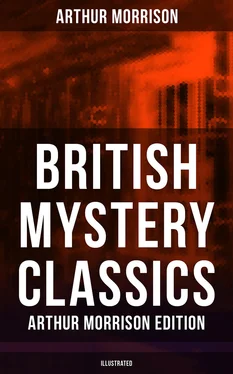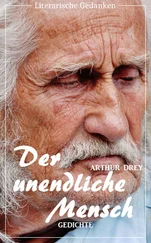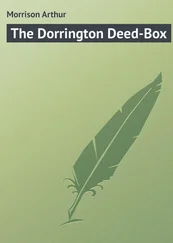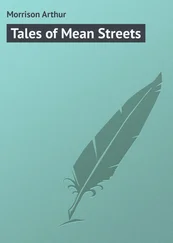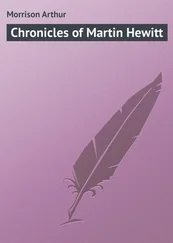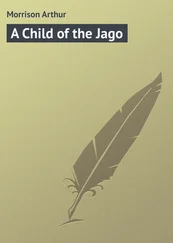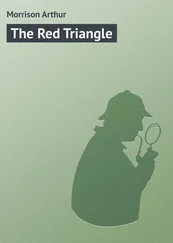The old house wherein my chambers and Hewitt’s office were situated contained, besides my own, two or three more bachelors’ dens, in addition to the offices on the ground and first and second floors. At the very top of all, at the back, a fat, middle-aged man, named Foggatt, occupied a set of four rooms. It was only after a long residence, by an accidental remark of the housekeeper’s, that I learned the man’s name, which was not painted on his door or displayed, with all the others, on the wall of the ground-floor porch.
Mr. Foggatt appeared to have few friends, but lived in something as nearly approaching luxury as an old bachelor living in chambers can live. An ascending case of champagne was a common phenomenon of the staircase, and I have more than once seen a picture, destined for the top floor, of a sort that went far to awaken green covetousness in the heart of a poor journalist.
The man himself was not altogether prepossessing. Fat as he was, he had a way of carrying his head forward on his extended neck and gazing widely about with a pair of the roundest and most prominent eyes I remember to have ever seen, except in a fish. On the whole, his appearance was rather vulgar, rather arrogant, and rather suspicious, without any very pronounced quality of any sort. But certainly he was not pretty. In the end, however, he was found shot dead in his sitting-room.
It was in this way: Hewitt and I had dined together at my club, and late in the evening had returned to my rooms to smoke and discuss whatever came uppermost. I had made a bargain that day with two speculative odd lots at a book sale, each of which contained a hidden prize. We sat talking and turning over these books while time went unperceived, when suddenly we were startled by a loud report. Clearly it was in the building. We listened for a moment, but heard nothing else, and then Hewitt expressed his opinion that the report was that of a gunshot. Gunshots in residential chambers are not common things, wherefore I got up and went to the landing, looking up the stairs and down.
At the top of the next flight I saw Mrs. Clayton, the housekeeper. She appeared to be frightened, and told me that the report came from Mr. Foggatt’s room. She thought he might have had an accident with the pistol that usually lay on his mantel-piece. We went upstairs with her, and she knocked at Mr. Foggatt’s door.
There was no reply. Through the ventilating fanlight over the door it could be seen that there were lights within, a sign, Mrs. Clayton maintained, that Mr. Foggatt was not out. We knocked again, much more loudly, and called, but still ineffectually. The door was locked, and an application of the housekeeper’s key proved that the tenant’s key had been left in the lock inside. Mrs. Clayton’s conviction that “something had happened” became distressing, and in the end Hewitt pried open the door with a small poker.
Something had happened. In the sitting-room Mr. Foggatt sat with his head bowed over the table, quiet and still. The head was ill to look at, and by it lay a large revolver, of the full-sized army pattern. Mrs. Clayton ran back toward the landing with faint screams.
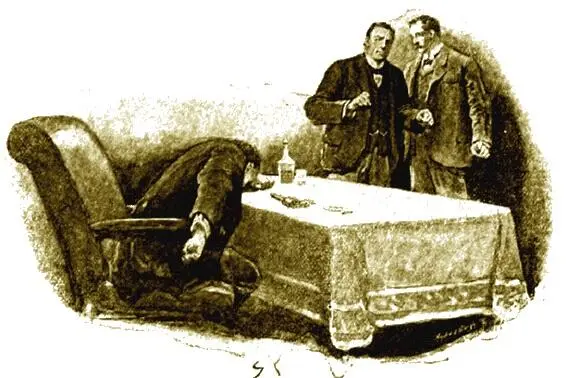
“Run, Brett!” said Hewitt; “a doctor and a policeman!”
I bounced down the stairs half a flight at a time. “First,” I thought, “a doctor. He may not be dead.” I could think of no doctor in the immediate neighborhood, but ran up the street away from the Strand, as being the more likely direction for the doctor, although less so for the policeman. It took me a good five minutes to find the medico, after being led astray by a red lamp at a private hotel, and another five to get back, with a policeman.
Foggatt was dead, without a doubt. Probably had shot himself, the doctor thought, from the powder-blackening and other circumstances. Certainly nobody could have left the room by the door, or he must have passed my landing, while the fact of the door being found locked from the inside made the thing impossible. There were two windows to the room, both of which were shut, one being fastened by the catch, while the catch of the other was broken—an old fracture. Below these windows was a sheer drop of fifty feet or more, without a foot or hand-hold near. The windows in the other rooms were shut and fastened. Certainly it seemed suicide—unless it were one of those accidents that will occur to people who fiddle ignorantly with firearms. Soon the rooms were in possession of the police, and we were turned out.
We looked in at the housekeeper’s kitchen, where her daughter was reviving and calming Mrs. Clayton with gin and water.
“You mustn’t upset yourself, Mrs. Clayton,” Hewitt said, “or what will become of us all? The doctor thinks it was an accident.”
He took a small bottle of sewing-machine oil from his pocket and handed it to the daughter, thanking her for the loan.
There was little evidence at the inquest. The shot had been heard, the body had been found—that was the practical sum of the matter. No friends or relatives of the dead man came forward. The doctor gave his opinion as to the probability of suicide or an accident, and the police evidence tended in the same direction. Nothing had been found to indicate that any other person had been near the dead man’s rooms on the night of the fatality. On the other hand, his papers, bankbook, etc., proved him to be a man of considerable substance, with no apparent motive for suicide. The police had been unable to trace any relatives, or, indeed, any nearer connections than casual acquaintances, fellow-clubmen, and so on. The jury found that Mr. Foggatt had died by accident.
“Well, Brett,” Hewitt asked me afterward, “what do you think of the verdict?”
I said that it seemed to be the most reasonable one possible, and to square with the common-sense view of the case.
“Yes,” he replied, “perhaps it does. From the point of view of the jury, and on their information, their verdict was quite reasonable. Nevertheless, Mr. Foggatt did not shoot himself. He was shot by a rather tall, active young man, perhaps a sailor, but certainly a gymnast—a young man whom I think I could identify if I saw him.”
“But how do you know this?”
“By the simplest possible inferences, which you may easily guess, if you will but think.”
“But, then, why didn’t you say this at the inquest?”
“My dear fellow, they don’t want any inferences and conjectures at an inquest; they only want evidence. If I had traced the murderer, of course then I should have communicated with the police. As a matter of fact, it is quite possible that the police have observed and know as much as I do—or more. They don’t give everything away at an inquest, you know. It wouldn’t do.”
“But, if you are right, how did the man get away?”
“Come, we are near home now. Let us take a look at the back of the house. He couldn’t have left by Foggatt’s landing door, as we know; and as he was there (I am certain of that), and as the chimney is out of the question—for there was a good fire in the grate—he must have gone out by the window. Only one window is possible—that with the broken catch—for all the others were fastened inside. Out of that window, then, he went.”
“But how? The window is fifty feet up.”
“Of course it is. But why will you persist in assuming that the only way of escape by a window is downward? See, now, look up there. The window is at the top floor, and it has a very broad sill. Over the window is nothing but the flat face of the gable-end; but to the right, and a foot or two above the level of the top of the window, an iron gutter ends. Observe, it is not of lead composition, but a strong iron gutter, supported, just at its end, by an iron bracket. If a tall man stood on the end of the window-sill, steadying himself by the left hand and leaning to the right, he could just touch the end of this gutter with his right hand. The full stretch, toe to finger, is seven feet three inches. I have measured it. An active gymnast, or a sailor, could catch the gutter with a slight spring, and by it draw himself upon the roof. You will say he would have to be very active, dexterous, and cool. So he would. And that very fact helps us, because it narrows the field of inquiry. We know the sort of man to look for. Because, being certain (as I am) that the man was in the room, I know that he left in the way I am telling you. He must have left in some way, and, all the other ways being impossible, this alone remains, difficult as the feat may seem. The fact of his shutting the window behind him further proves his coolness and address at so great a height from the ground.”
Читать дальше
